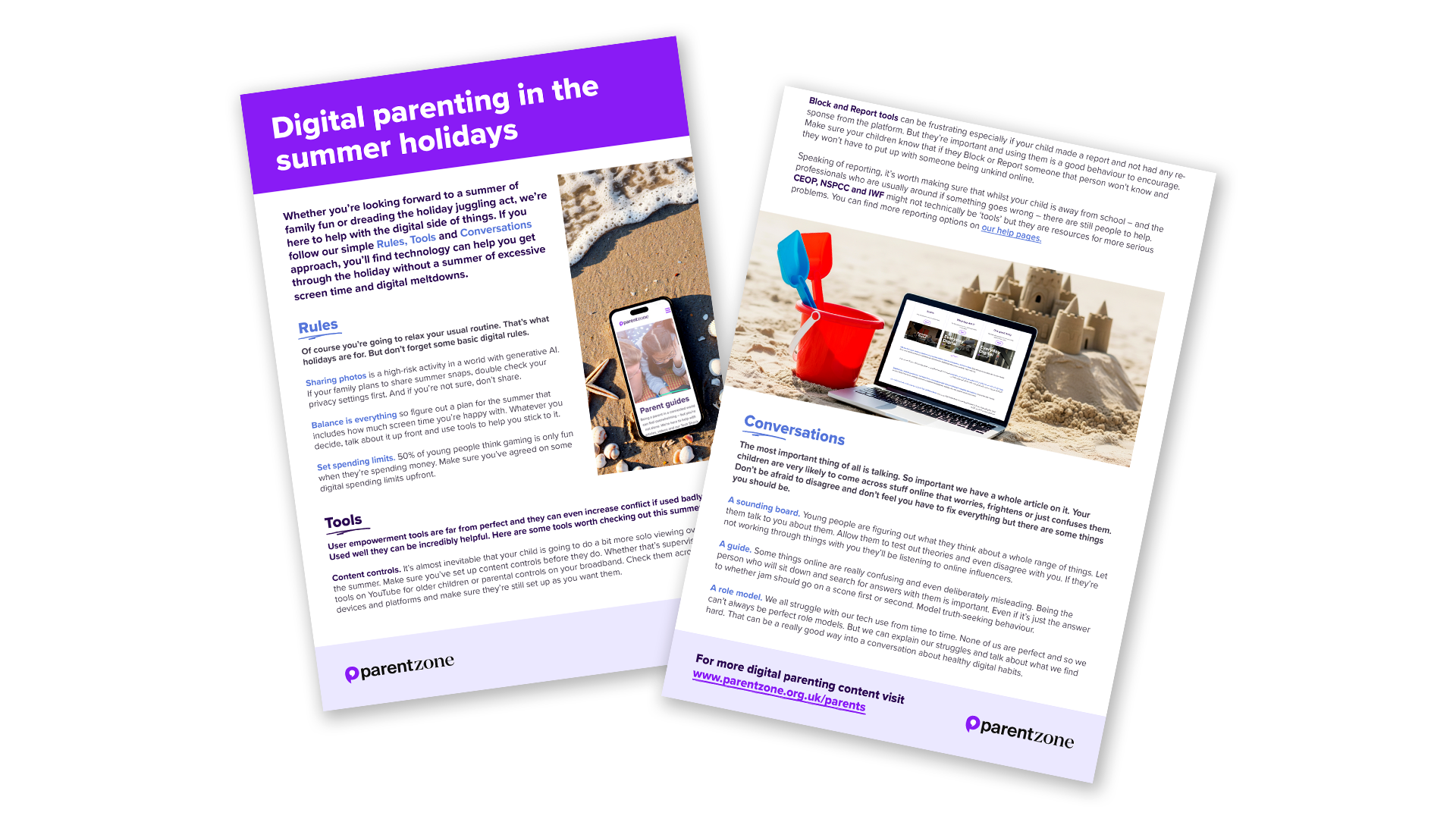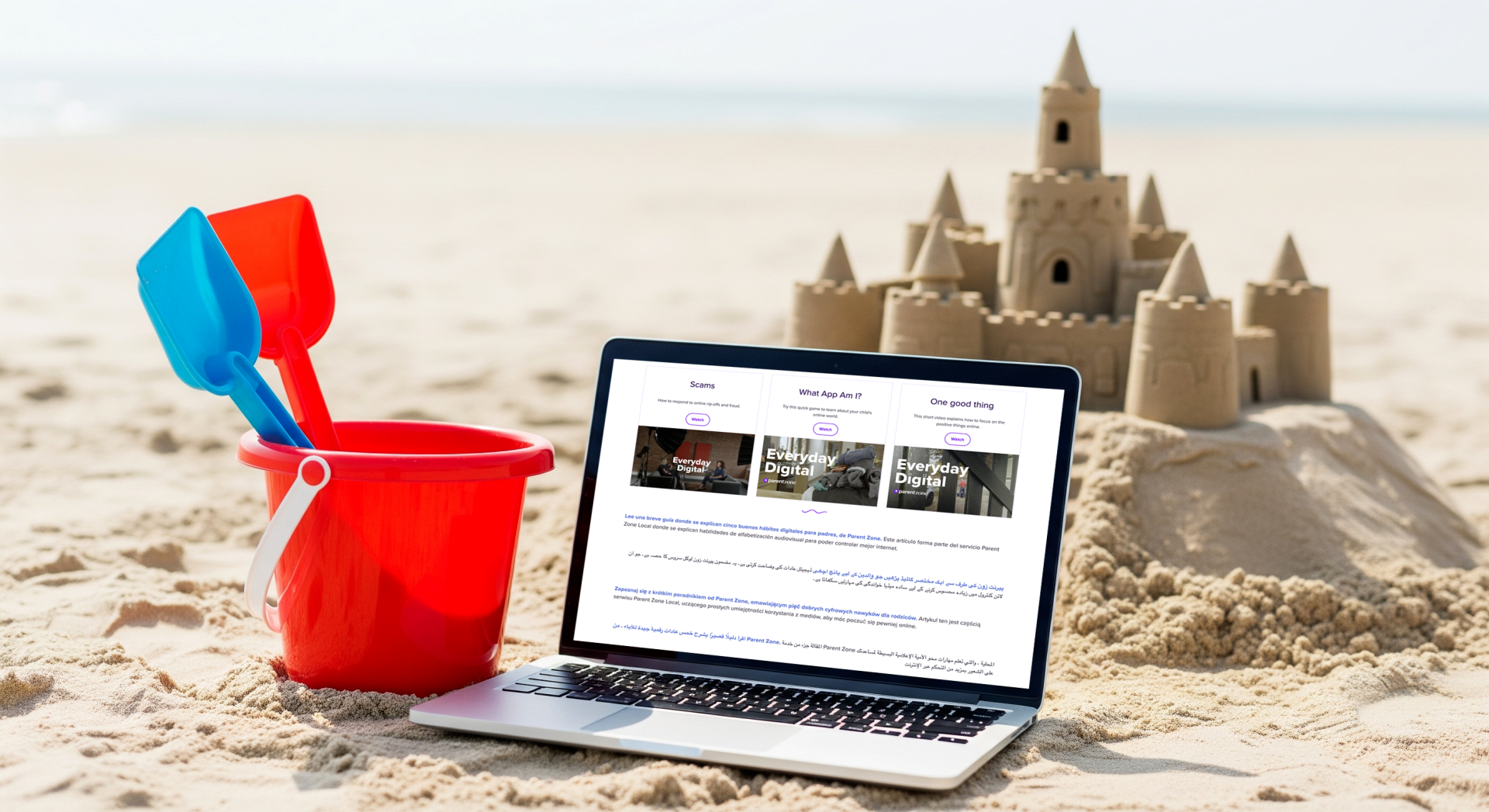Digital parenting in the summer holidays
Whether you’re looking forward to a summer of family fun or dreading the holiday juggling act, we’re here to help with the digital side of things. If you follow our simple Rules, Tools and Conversations approach, you’ll find technology can help you get through the holiday without a summer of excessive screen time and digital meltdowns.
Rules
Of course you’re going to relax your usual routine. That’s what holidays are for. But don’t forget some basic digital rules.
Sharing photos is a high-risk activity in a world with generative AI. If your family plans to share summer snaps, double check your privacy settings first. And if you’re not sure, don’t share.
Balance is everything so figure out a plan for the summer that includes how much screen time you’re happy with. Whatever you decide, talk about it up front and use tools to help you stick to it.
Set spending limits. 50% of young people think gaming is only fun when they’re spending money. Make sure you’ve agreed on some digital spending limits upfront.

Click to download this article as a handout
Tools
User empowerment tools are far from perfect and they can even increase conflict if used badly. Used well they can be incredibly helpful. Here are some tools worth checking out this summer.
Content controls. It’s almost inevitable that your child is going to do a bit more solo viewing over the summer. Make sure you’ve set up content controls before they do. Whether that’s supervision tools on YouTube for older children or parental controls on your broadband. Check them across devices and platforms and make sure they’re still set up as you want them.
Block and Report tools can be frustrating especially if your child made a report and not had any response from the platform. But they’re important and using them is a good behaviour to encourage. Make sure your children know that if they Block or Report someone that person won’t know and they won’t have to put up with someone being unkind online.
Speaking of reporting, it’s worth making sure that whilst your child is away from school – and the professionals who are usually around if something goes wrong – there are still people to help.
CEOP, NSPCC and IWF might not technically be ‘tools’ but they are resources for more serious problems. You can find more reporting options on our help page.
Conversations
The most important thing of all is talking. So important we have a whole article on it. Your children are very likely to come across stuff online that worries, frightens or just confuses them. Don’t be afraid to disagree and don’t feel you have to fix everything but there are some things you should be.
A sounding board. Young people are figuring out what they think about a whole range of things. Let them talk to you about them. Allow them to test out theories and even disagree with you. If they’re not working through things with you they’ll be listening to online influencers.
A guide. Some things online are really confusing and even deliberately misleading. Being the person who will sit down and search for answers with them is important. Even if it’s just the answer to whether jam should go on a scone first or second. Model truth-seeking behaviour.
A role model. We all struggle with our tech use from time to time. None of us are perfect and so we can’t always be perfect role models. But we can explain our struggles and talk about what we find hard. That can be a really good way into a conversation about healthy digital habits.


